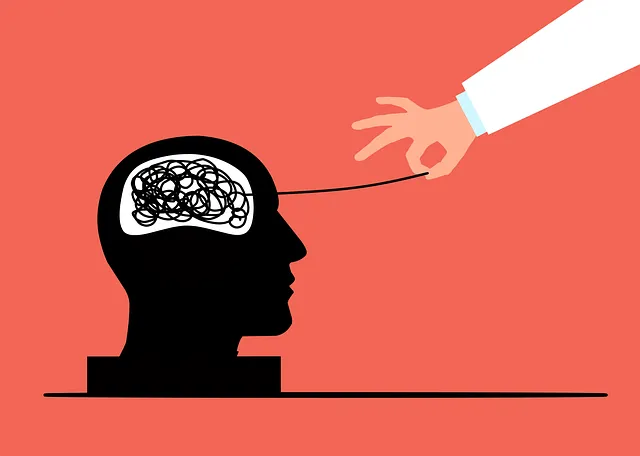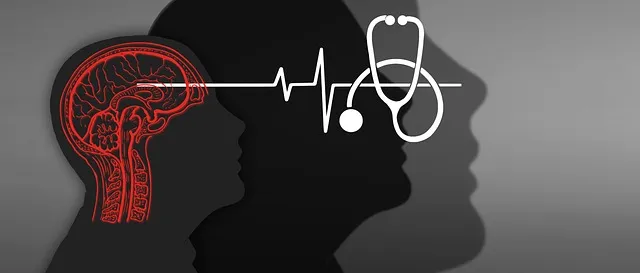Kaiser's inpatient mental health services in Centennial tackle stigma through specialized care, state-of-the-art facilities, tailored services, education programs, and community engagement. They promote understanding, dispel myths, and foster inclusivity to encourage early intervention and better outcomes for individuals with mental illness. Compassion Cultivation Practices and emotional regulation techniques are key components of their comprehensive approach.
“Mental illness stigma reduction is a vital topic in our modern society, and understanding its pervasive impact is the first step towards change. This article explores strategies to dispel the myths surrounding mental health, focusing on Kaiser’s inpatient services in Centennial as a model for accessible care. We delve into effective methods to reduce stigma, emphasizing community engagement as a powerful tool. By examining these initiatives, we aim to highlight successful approaches that can lead to more inclusive and supportive environments for those seeking mental wellness.”
- Understanding the Stigma Surrounding Mental Illness
- Kaiser's Inpatient Mental Health Services in Centennial
- Strategies for Effective Stigma Reduction
- The Impact of Community Engagement on Stigma Elimination
Understanding the Stigma Surrounding Mental Illness

Mental illness stigma is a pervasive issue that often prevents individuals from seeking help. The societal perception of mental health conditions as weaknesses or moral failings creates a barrier to treatment, leading many to suffer in silence. This stigma can be attributed to various factors, including misinformation, fear of judgment, and the historical marginalization of those with mental illnesses.
At healthcare providers like Kaiser, efforts are underway to combat this stigma, particularly through inpatient mental health services in Centennial. Inpatient programs offer a safe and supportive environment where individuals can focus on their recovery without external distractions. These initiatives, coupled with Cultural Competency Training for healthcare providers, aim to foster understanding and empathy. By promoting emotional well-being through various techniques and boosting confidence, these efforts contribute to creating a more inclusive and accepting society where mental illness is recognized as a treatable medical condition, not a personal failing.
Kaiser's Inpatient Mental Health Services in Centennial

Kaiser’s Inpatient Mental Health Services in Centennial play a significant role in reducing stigma associated with mental illness. By offering specialized care within their state-of-the-art facilities, Kaiser facilitates access to quality treatment options for individuals seeking support for various mental health conditions. This comprehensive approach includes a range of services tailored to meet the unique needs of each patient.
The Mental Health Education Programs designed by Kaiser focus on promoting mental wellness and emotional regulation as key components in breaking down barriers and fostering understanding. These programs are integral to their overall strategy, aiming to educate both patients and the broader community about mental health, thereby reducing misconceptions and encouraging early intervention. Such initiatives contribute significantly to a more supportive and inclusive environment for individuals living with mental illness.
Strategies for Effective Stigma Reduction

Mental illness stigma reduction is a multifaceted effort that requires a comprehensive approach. One effective strategy involves education and awareness campaigns that dispel myths and provide accurate information about mental health conditions. Involving community leaders, healthcare professionals, and individuals with lived experiences in these initiatives can help ensure messages are both authentic and impactful. Additionally, promoting Compassion Cultivation Practices and encouraging empathy can significantly reduce stigma. These practices foster emotional understanding and regulation, leading to more supportive environments for those facing mental health challenges.
Centennial communities have a unique opportunity through programs like those offered by Kaiser’s inpatient mental health services to implement these strategies. By integrating Emotional Healing Processes, such as therapy and support groups, into the fabric of community life, stigma can be challenged at its root. Encouraging open conversations about mental health and normalizing emotional expression are key components in this effort. Such efforts not only reduce stigma but also enhance overall well-being by promoting healthy emotional regulation practices among all residents.
The Impact of Community Engagement on Stigma Elimination

In the effort to reduce stigma surrounding mental illness, community engagement plays a pivotal role. When communities actively participate in conversations about mental health, they create an environment where individuals feel more comfortable seeking support and treatment. Programs like those offered by Kaiser’s inpatient mental health services in Centennial aim to foster this inclusivity through various initiatives. These may include educational workshops, peer support groups, and outreach programs that dispel myths and offer accurate information about mental illness.
By engaging with the community, these efforts not only help in stigma reduction but also promote emotional healing processes and encourage the adoption of self-care practices and mindfulness meditation. This collective approach ensures that individuals struggling with their mental health feel supported and understood, ultimately leading to improved access to care and better outcomes for all.
Mental illness stigma reduction is a multifaceted approach, from understanding societal perceptions to implementing effective strategies. Organizations like Kaiser play a crucial role in this process, offering inpatient mental health services in Centennial that challenge norms and foster community engagement. By combining education, support, and accessible care, such initiatives significantly contribute to eliminating the stigma surrounding mental health issues, ultimately creating a more inclusive and supportive society.






